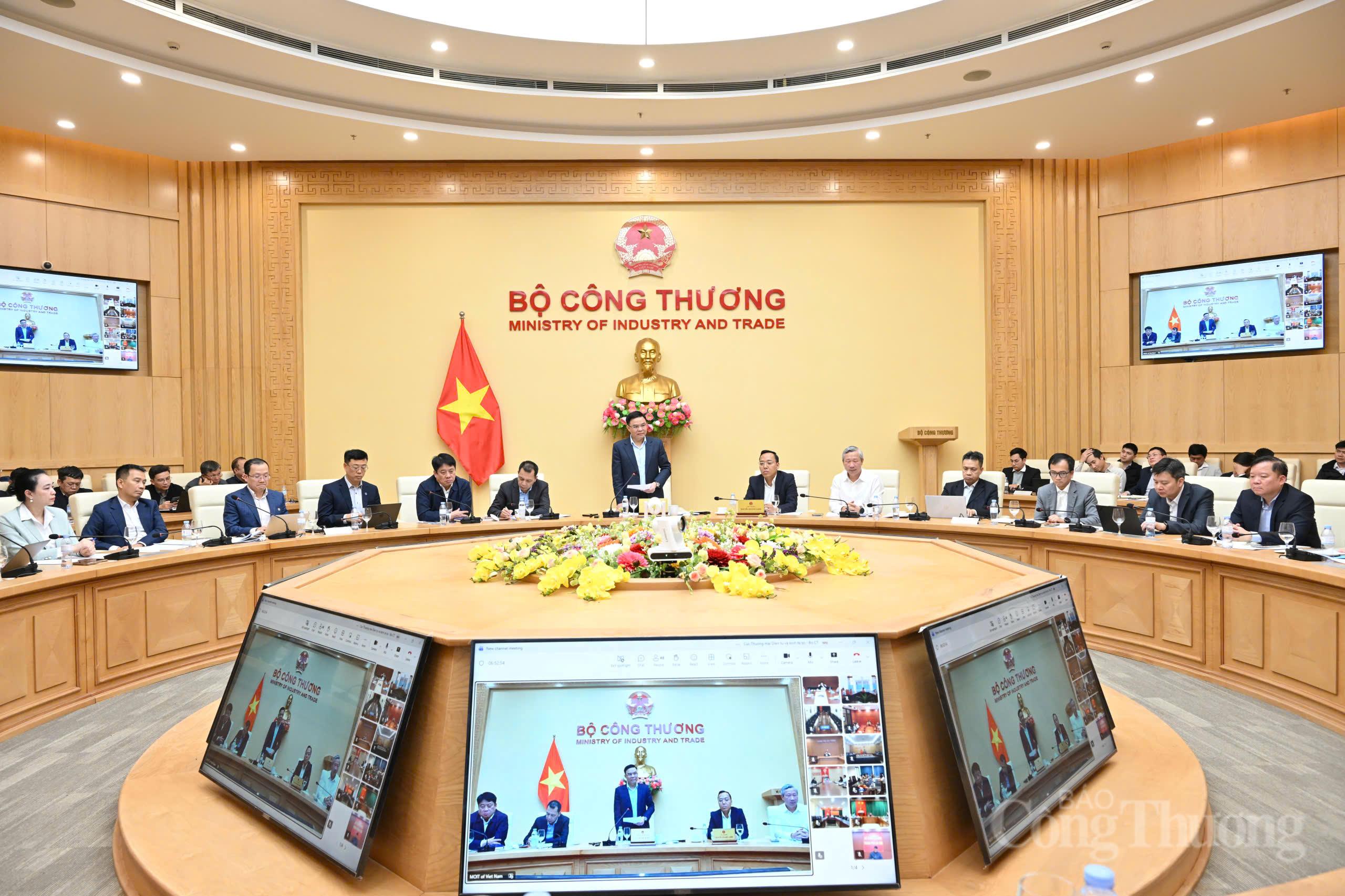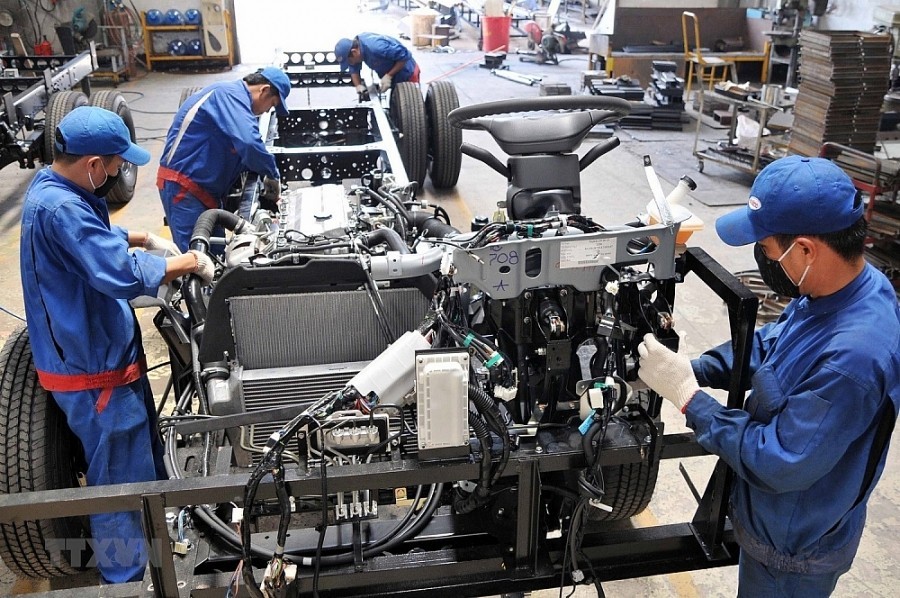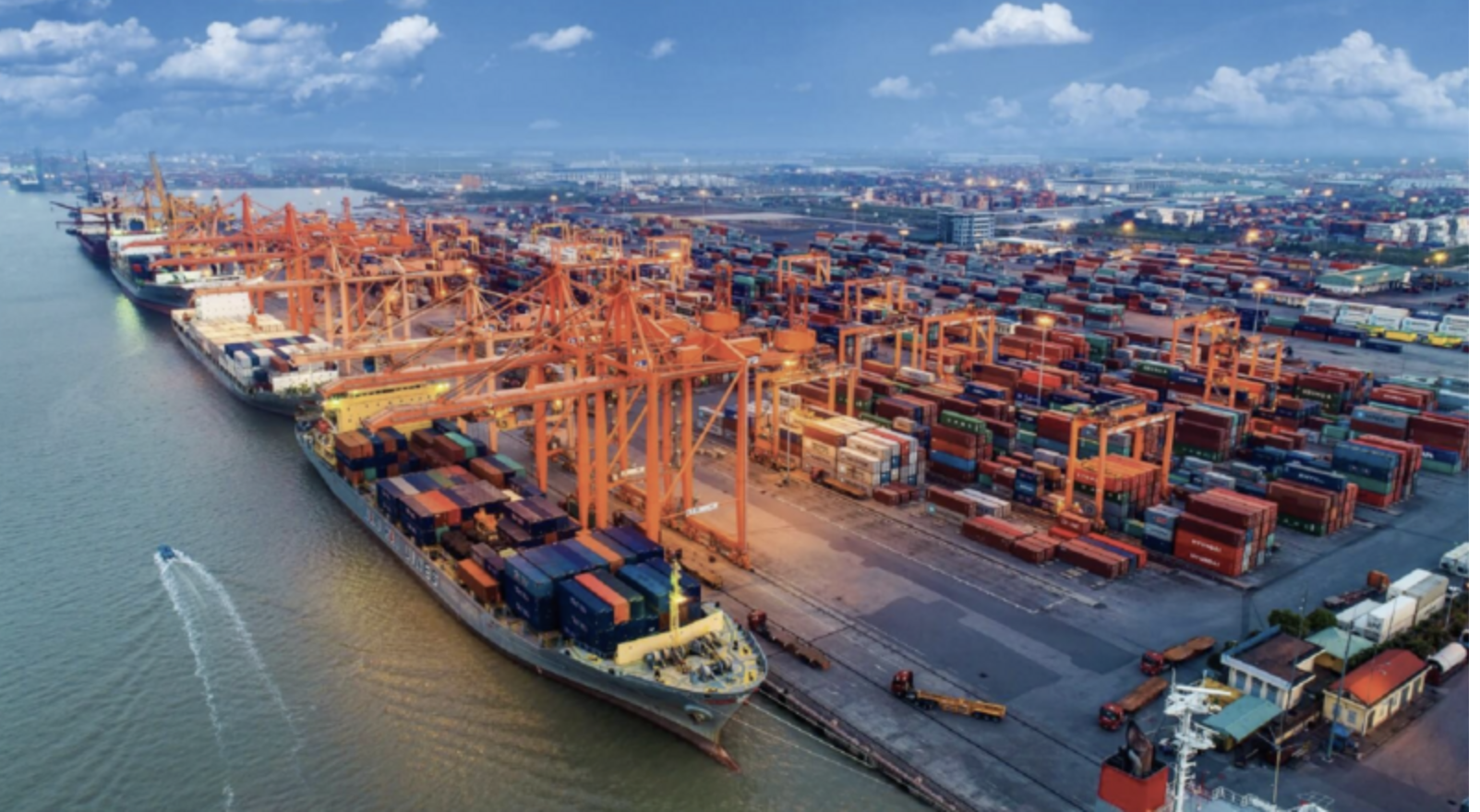
The MoIT strengthens the power supply and key energy projects
19:05 | 23/03/2025 14:42 | 31/01/2026News and Events
Big opportunities
According to the Vietnam Association of Mechanical Industry (VAMI), some Vietnamese mechanical products are of equal quality to similar products of certain countries in the region. High market demand has encouraged supporting industry enterprises to invest in enhancing their production capabilities, focusing on developing high-quality product lines to serve foreign direct investment (FDI) firms and targeting the export of mechanical products.
 |
| Domestic mechanical enterprises need specific support policies - photo: Ha Linh |
Therefore, domestically produced metal components currently meet 85-90 percent of the demand for motorcycle manufacturing, 5-40 percent of the demand for automobile manufacturing, depending on the vehicle type, approximately 20 percent for synchronous equipment manufacturing, 40-60 percent for agricultural machinery and power machinery manufacturing, and 40 percent for construction machinery. The supply of metal components for high-tech industries currently meets about 10 percent of the demand.
In Vietnam, Truong Hai Group Corporation - Thaco Industries in the Thaco Chu Lai Industrial Park (Quang Nam Province) is one of the pioneers in developing the supporting industry. Thaco Industries manufactures a wide range of mechanical products, including agricultural machinery, water supply and drainage pipes, water tanks, automotive components and spare parts. These products have contributed to Thaco Industries’ annual revenue of billions of USD and continuous growth in recent years.
Truong Thi Chi Binh, Secretary-General of the Vietnam Association for Supporting Industries (VASI), said that Vietnam’s participation in various free trade agreements offers domestic mechanical and supporting industry enterprises big opportunities. These agreements will provide mechanical enterprises with advantages in terms of export, market expansion, and FDI attraction.
Support solutions
Despite positive developments, the supporting industry of the mechanical engineering sector still reveals limitations. Many companies still have to import fully assembled machinery for resale because manufacturing in Vietnam requires importing raw materials from abroad, resulting in higher costs and reduced competitiveness. To develop the support industry of the mechanical engineering sector, according to VAMI, a sales support program is required to connect enterprises with potential buyers. It is also necessary to provide incentives for medium-sized companies to invest in expanding production, workforce training, and access to financial support.
Some experts in the mechanical industry believe that specific policies are needed to support domestic enterprises, such as providing them with training on production and business management systems. This would help domestic supporting industry businesses enhance their capabilities to meet international standards and join global production and supply chains. It would also provide them with better access to new technologies. It is necessary to consider providing equal investment incentives for domestic enterprises and FDI companies.
In recent years, the Ministry of Industry and Trade has promoted the efficiency of the two technical support centers for industrial development in the Northern and Southern regions to assist mechanical and supporting industry enterprises in training on production and business management systems, helping enhance their capacity to meet international standards. However, to boost the manufacturing of mechanical components, the Government needs strong policies to encourage the production of fabrication materials. Additionally, it is important to prioritize the development of downstream industries and develop supporting industry products for those sectors.

19:05 | 23/03/2025 14:42 | 31/01/2026News and Events

19:05 | 23/03/2025 22:14 | 30/01/2026News and Events

19:05 | 23/03/2025 16:24 | 30/01/2026Science - Technology

19:05 | 23/03/2025 09:54 | 30/01/2026Cooperation

19:05 | 23/03/2025 09:40 | 30/01/2026Investment